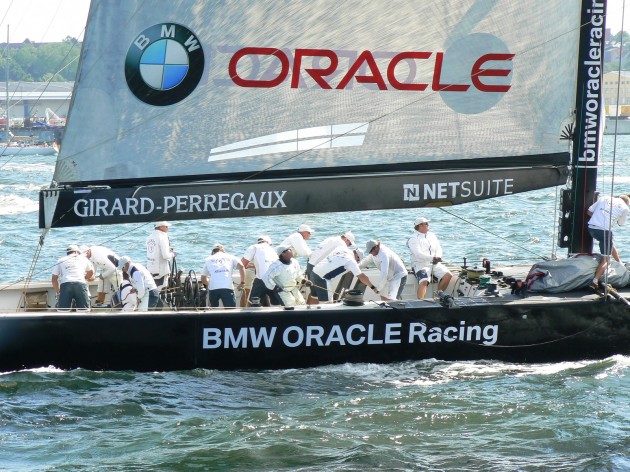Recently, I’ve seen a number of folks on twitter and in the blogosphere complaining about the complexity of SQL Server licensing. While it is a slightly complicated topic and nowhere near as simple as Azure SQL Database (need more perf? Spend more $€£), there are other products in our space like Oracle and SAP that make licensing SQL Server look like a piece of brioche.

And while talking about vendors who spend your hard earned licensing dollars on racing sailboats and MIG fighter planes, through a recent project, I’ve had the opportunity to make a direct comparison between the licensing cost for SQL Server and Oracle. These numbers are not from quotes (list price), however this is a real customer of mine, and the features they use. This customer was an early adopter of SQL Server 2016, and uses MANY of the features in the product. Most of which are cost options in Oracle.
| SQL Server | Oracle | ||
|---|---|---|---|
| Core Engine (16 cores) | $109,980.00 | Database Engine | $380,000.00 |
| Compression | Advanced Compression | $92,000.00 | |
| Columnstore | Database In-Memory | $184,000.00 | |
| Analysis Tabular | OLAP | $184,000.00 | |
| R Services | Advanced Analytics | $184,000.00 | |
| Partitioning | Partitioning | $92,000.00 | |
| Query Store | Tuning Pack | $40,000.00 | |
| Spatial | Spatial | $140,000.00 | |
| Availability Groups | Active Data Guard | $92,000.00 | |
| Total | $109,980.00 | $1,388,000.00 |
When I see those numbers in Microsoft marketing slides, I sometimes wonder if they can be real, but then I put these numbers together myself. Granted you would get some discounts, but the fact that all of these features are built into SQL Server, should convince you of the value SQL Server offers. Pricing discounts are generally similar between vendors, so that is not really a point of argument. If you are doing a really big Oracle deal you may see a larger upfront discount, but you will still be paying your 23% support fees on that very large list price. (Software Assurance from Microsoft will be around 20%, but from a much lower base) Additionally, several of these features ae available in SQL Server Standard Edition. None of these features are in Oracle’s Standard Edition.

2 Responses
(cough)PostgreSQL(/cough)
Brent,
Interesting comment. Postgres is a mature relational engine that has a very active developer community. However, for this customer it just wouldn’t be an option. You see can why in my follow up here:
https://www.dcac.co/syndication/but-what-about-postgres